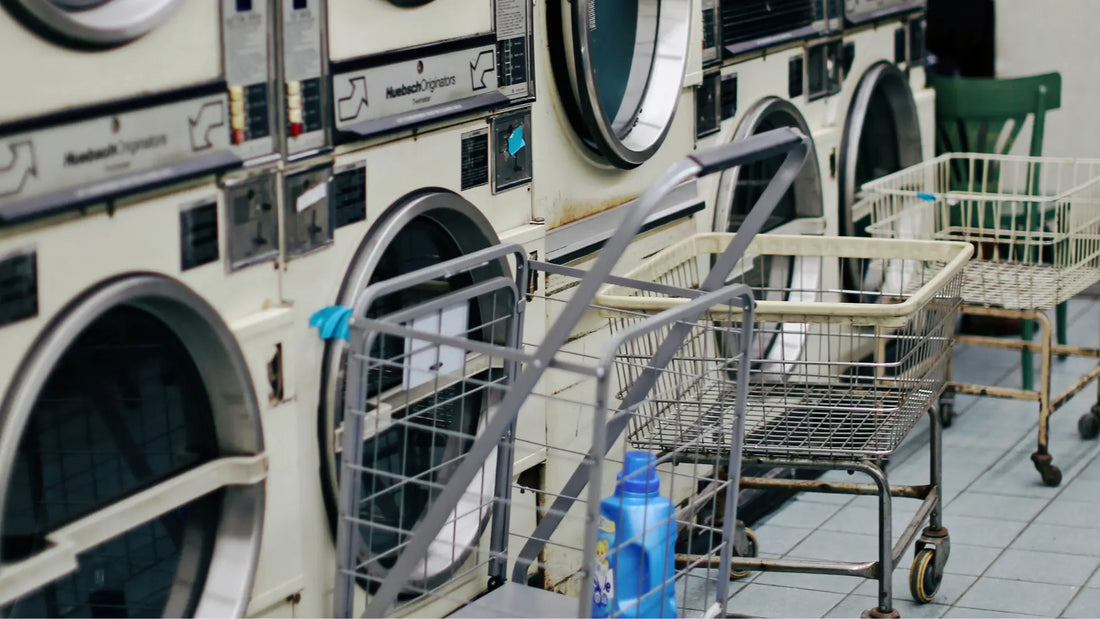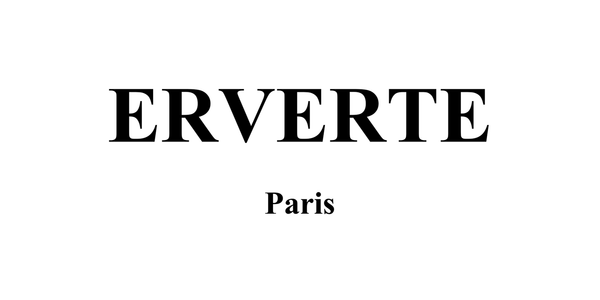
Vinegar: An Eco-Friendly and Economical Solution for the Home
Share
As environmental awareness becomes a priority for many households, the search for sustainable and cost-effective solutions is more relevant than ever. One standout option is vinegar—an incredibly versatile product that can enhance your home care routine in multiple ways. Not only does it serve as an effective substitute for fabric softener in laundry, but it can also replace rinse aid in dishwashers. Additionally, vinegar offers various health benefits that can be particularly relevant when used in cleaning. Let’s dive into the benefits of this practical and eco-friendly solution.
Vinegar as a Fabric Softener
Fabric softeners are commonly used to make clothes softer and reduce wrinkles, but they often contain synthetic chemicals that can be harsh on both the environment and your skin. Vinegar provides a natural and economical alternative that can achieve similar results without the downsides.
Benefits of Using Vinegar as a Fabric Softener
Eco-Friendly: Unlike many commercial fabric softeners, vinegar is a natural product that doesn’t contain harmful chemicals. It is biodegradable and has a minimal impact on the environment, making it a sustainable choice for eco-conscious consumers.
Economical: Vinegar is significantly cheaper than commercial fabric softeners. It’s available in large quantities at a low price, making it an ideal choice for those looking to reduce household expenses without sacrificing quality.
Prevents Limescale Build-Up: Vinegar helps to break down soap residues and dissolve limescale that accumulates in your washing machine. This can help prolong the life of your appliance and maintain its efficiency over time.
Softens Fabrics: Despite being chemical-free, vinegar is effective at softening fabric fibers. It can leave your clothes feeling soft and fresh without the use of synthetic softening agents.
Reduces Static: Vinegar can also help reduce static cling in your laundry. By adding a cup of vinegar to the fabric softener compartment, you can minimize the static that sometimes makes clothes cling together.
Vinegar as a Rinse Aid for Dishwashers
In addition to its role as a fabric softener, vinegar is also a powerful alternative to commercial rinse aids in dishwashers. Rinse aids are designed to prevent water spots and streaks on dishes and glasses, but they often contain chemicals that may not be desirable.
Benefits of Using Vinegar as a Rinse Aid
Cost-Effective: Vinegar is a budget-friendly option compared to commercial rinse aids. Its low cost allows you to make significant savings while still achieving the desired results in your dishwasher.
Eliminates Water Spots: Vinegar helps to prevent water spots and residue on your dishes and glassware. It ensures that your utensils come out of the dishwasher sparkling clean and streak-free.
Cleans and Deodorizes: Vinegar helps to break down mineral deposits and residues that can accumulate in your dishwasher. This not only improves the cleaning performance but also helps to eliminate unpleasant odors.
Gentle on Appliances: As a natural product, vinegar is gentle on your dishwasher’s components. It can help maintain the appliance's efficiency without the risk of chemical buildup or damage.
Environmental Impact: Using vinegar as a rinse aid reduces the need for chemical-laden products, making your dishwashing routine more environmentally friendly.
Health Benefits of Using Vinegar in Your Cleaning Routine
Incorporating vinegar into your cleaning routine offers more than just environmental and cost benefits. It also provides health advantages, particularly when used in household cleaning:
Reduces Chemical Exposure: By using vinegar instead of commercial rinse aids, you minimize exposure to potentially harmful chemicals that can be present in conventional cleaning products. This is especially beneficial for individuals with sensitivities or allergies to synthetic substances.
Safe for Food Contact Surfaces: Vinegar is a natural disinfectant with antimicrobial properties, making it a safer choice for cleaning surfaces that come into contact with food. It helps to ensure that your dishes, utensils, and kitchen surfaces are clean without leaving harmful residues.
Supports Respiratory Health: Many commercial cleaning products contain volatile organic compounds (VOCs) that can irritate the respiratory system. Vinegar, being a natural product, does not release VOCs, making it a better option for maintaining indoor air quality.
Reduces Allergens: Vinegar’s ability to break down residues and kill bacteria can help reduce allergens in your home. This can be particularly beneficial for individuals with allergies or asthma, as it helps to create a cleaner and healthier living environment.
Non-Toxic: Unlike some chemical cleaning agents, vinegar is non-toxic and safe for use around children and pets. It provides a safer alternative for households with young children or animals, reducing the risk of exposure to harmful substances.
Conclusion
Vinegar stands out as a versatile and eco-friendly household product that can effectively replace both fabric softeners and rinse aids. By incorporating vinegar into your cleaning routine, you can make a positive impact on the environment while enjoying significant cost savings. Additionally, vinegar offers health benefits, from reducing chemical exposure to supporting respiratory health.
It’s worth noting that vinegar has a distinct acidic odor that some people might find unpleasant. However, this smell generally dissipates during the washing or rinsing process and doesn’t linger on your clothes or dishes. With this minor consideration in mind, vinegar proves to be an excellent addition to your household routine and wellness practices. Embrace the benefits of this natural alternative and see for yourself how it can enhance both your eco-conscious lifestyle and overall health.
Vinegar as a Fabric Softener
Fabric softeners are commonly used to make clothes softer and reduce wrinkles, but they often contain synthetic chemicals that can be harsh on both the environment and your skin. Vinegar provides a natural and economical alternative that can achieve similar results without the downsides.
Benefits of Using Vinegar as a Fabric Softener
Eco-Friendly: Unlike many commercial fabric softeners, vinegar is a natural product that doesn’t contain harmful chemicals. It is biodegradable and has a minimal impact on the environment, making it a sustainable choice for eco-conscious consumers.
Economical: Vinegar is significantly cheaper than commercial fabric softeners. It’s available in large quantities at a low price, making it an ideal choice for those looking to reduce household expenses without sacrificing quality.
Prevents Limescale Build-Up: Vinegar helps to break down soap residues and dissolve limescale that accumulates in your washing machine. This can help prolong the life of your appliance and maintain its efficiency over time.
Softens Fabrics: Despite being chemical-free, vinegar is effective at softening fabric fibers. It can leave your clothes feeling soft and fresh without the use of synthetic softening agents.
Reduces Static: Vinegar can also help reduce static cling in your laundry. By adding a cup of vinegar to the fabric softener compartment, you can minimize the static that sometimes makes clothes cling together.
Vinegar as a Rinse Aid for Dishwashers
In addition to its role as a fabric softener, vinegar is also a powerful alternative to commercial rinse aids in dishwashers. Rinse aids are designed to prevent water spots and streaks on dishes and glasses, but they often contain chemicals that may not be desirable.
Benefits of Using Vinegar as a Rinse Aid
Cost-Effective: Vinegar is a budget-friendly option compared to commercial rinse aids. Its low cost allows you to make significant savings while still achieving the desired results in your dishwasher.
Eliminates Water Spots: Vinegar helps to prevent water spots and residue on your dishes and glassware. It ensures that your utensils come out of the dishwasher sparkling clean and streak-free.
Cleans and Deodorizes: Vinegar helps to break down mineral deposits and residues that can accumulate in your dishwasher. This not only improves the cleaning performance but also helps to eliminate unpleasant odors.
Gentle on Appliances: As a natural product, vinegar is gentle on your dishwasher’s components. It can help maintain the appliance's efficiency without the risk of chemical buildup or damage.
Environmental Impact: Using vinegar as a rinse aid reduces the need for chemical-laden products, making your dishwashing routine more environmentally friendly.
Health Benefits of Using Vinegar in Your Cleaning Routine
Incorporating vinegar into your cleaning routine offers more than just environmental and cost benefits. It also provides health advantages, particularly when used in household cleaning:
Reduces Chemical Exposure: By using vinegar instead of commercial rinse aids, you minimize exposure to potentially harmful chemicals that can be present in conventional cleaning products. This is especially beneficial for individuals with sensitivities or allergies to synthetic substances.
Safe for Food Contact Surfaces: Vinegar is a natural disinfectant with antimicrobial properties, making it a safer choice for cleaning surfaces that come into contact with food. It helps to ensure that your dishes, utensils, and kitchen surfaces are clean without leaving harmful residues.
Supports Respiratory Health: Many commercial cleaning products contain volatile organic compounds (VOCs) that can irritate the respiratory system. Vinegar, being a natural product, does not release VOCs, making it a better option for maintaining indoor air quality.
Reduces Allergens: Vinegar’s ability to break down residues and kill bacteria can help reduce allergens in your home. This can be particularly beneficial for individuals with allergies or asthma, as it helps to create a cleaner and healthier living environment.
Non-Toxic: Unlike some chemical cleaning agents, vinegar is non-toxic and safe for use around children and pets. It provides a safer alternative for households with young children or animals, reducing the risk of exposure to harmful substances.
Conclusion
Vinegar stands out as a versatile and eco-friendly household product that can effectively replace both fabric softeners and rinse aids. By incorporating vinegar into your cleaning routine, you can make a positive impact on the environment while enjoying significant cost savings. Additionally, vinegar offers health benefits, from reducing chemical exposure to supporting respiratory health.
It’s worth noting that vinegar has a distinct acidic odor that some people might find unpleasant. However, this smell generally dissipates during the washing or rinsing process and doesn’t linger on your clothes or dishes. With this minor consideration in mind, vinegar proves to be an excellent addition to your household routine and wellness practices. Embrace the benefits of this natural alternative and see for yourself how it can enhance both your eco-conscious lifestyle and overall health.
